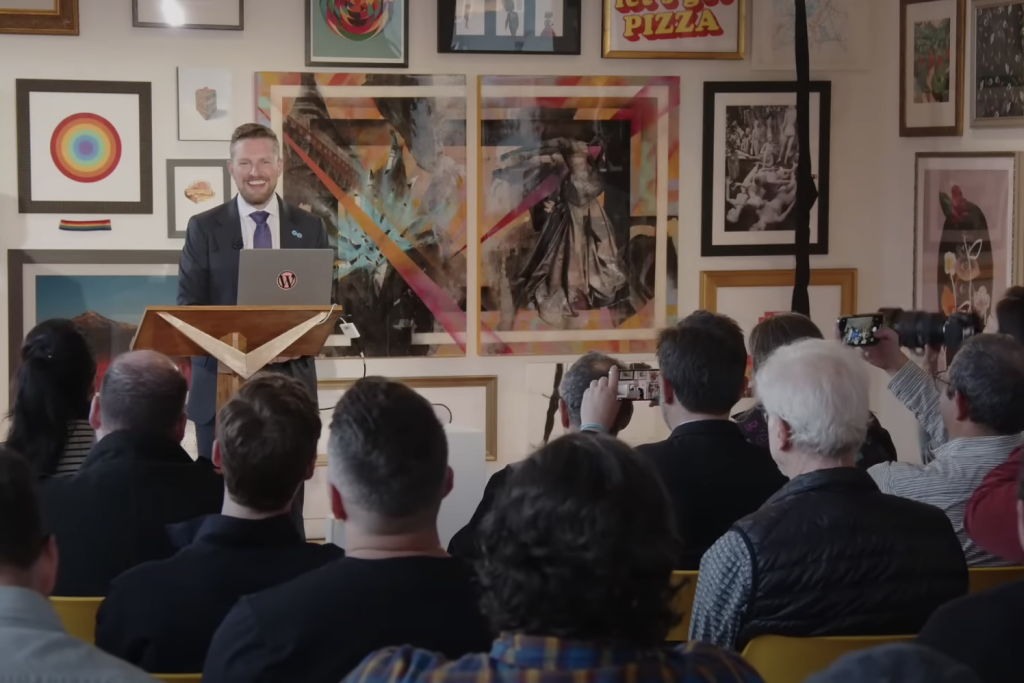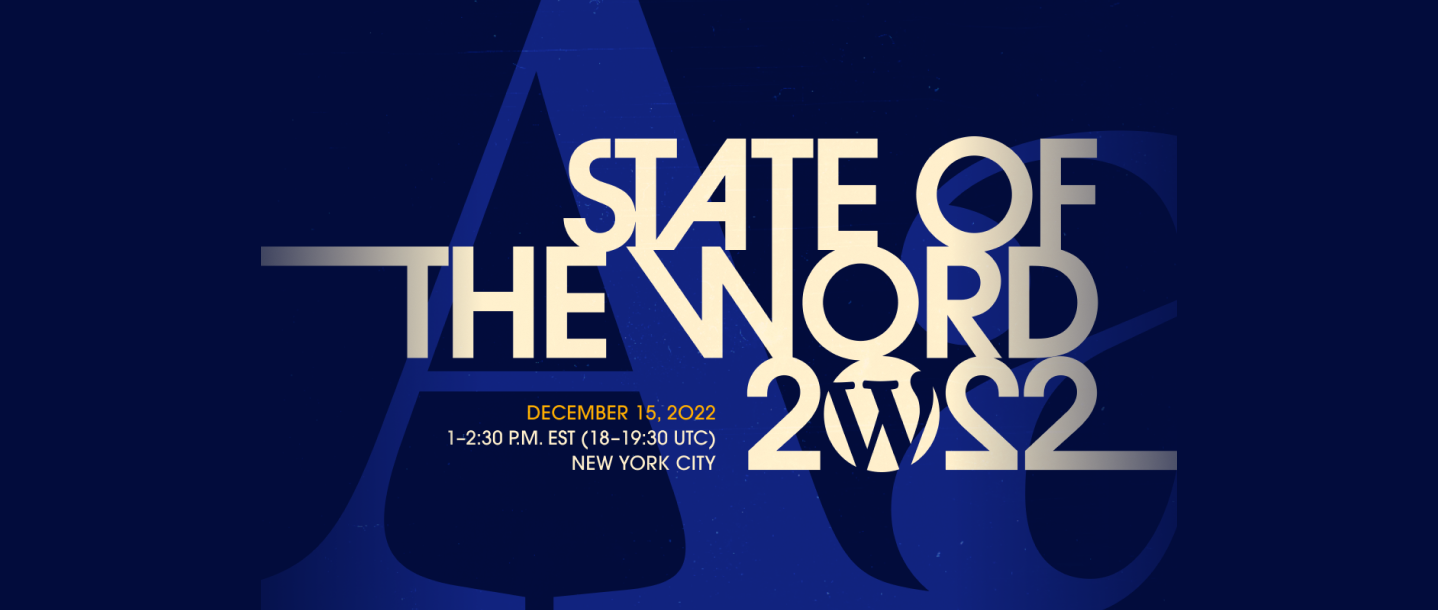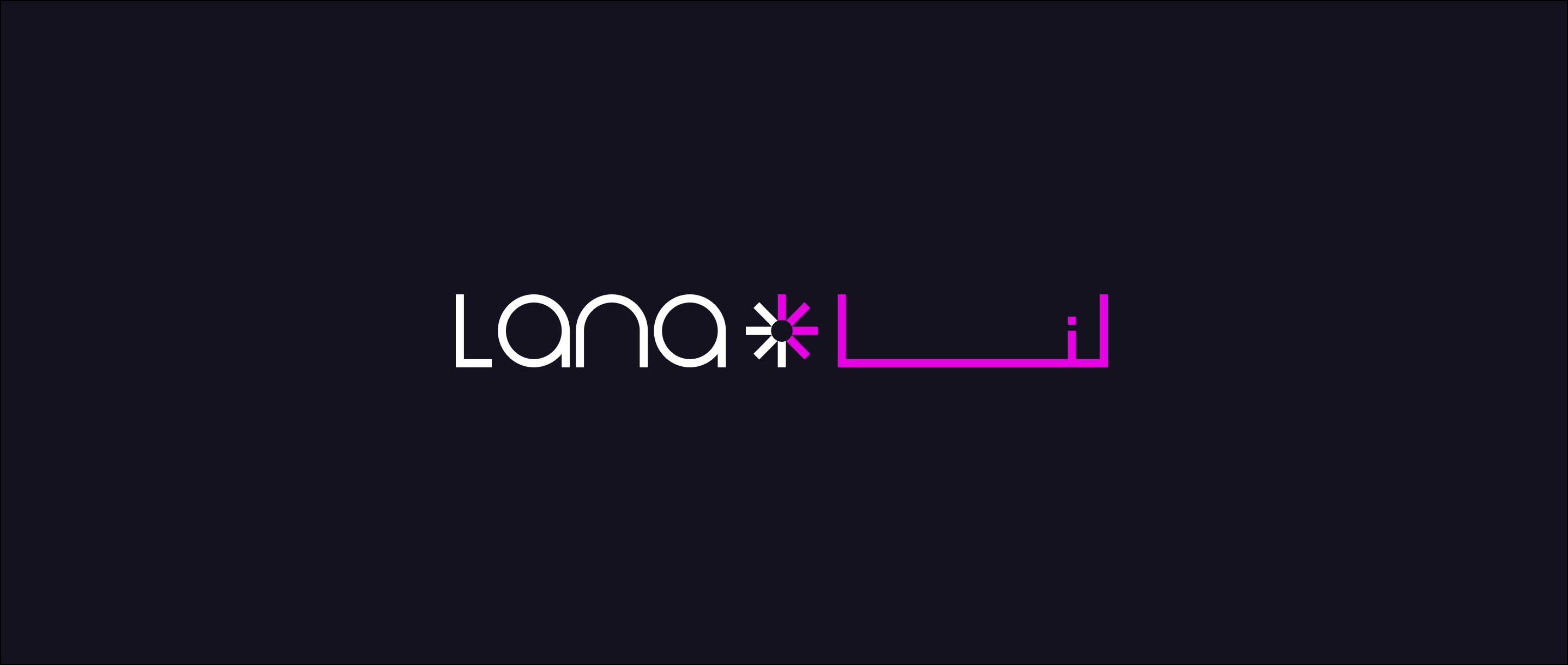Live-streamed from New York City on 15th December, this year’s State of the Word shared some insightful stats, a top-level overview of the platform’s latest enhancements, and confirmation of what’s to come in 2023, which Matt described as the next generation for both WordPress and the Gutenberg block editor.
Bigger than WordPress
Powering over 40% of the web and offering over 55,000 plugins and themes, WordPress has evolved into an internet giant, however, during the keynote, Matt predicted that the Gutenberg block editor will eventually become an even bigger success. He shared how the easy-to-use tool is now being embedded into applications outside of WordPress, and that it has the potential to become the global default for cross-platform editing.
External use cases highlighted in the keynote included a custom workflow builder, a political typology quiz, an award-winning journaling app, and the social network Tumblr. It’s anticipated that we’ll see many more examples in the coming months and years, and to pave the way for Gutenberg’s wider adoption beyond WordPress, the mobile version now also comes with dual licensing so it can be embedded within apps without open source conditions.
Meetups and milestones
Community meetups across all six continents are an important part of the WordPress culture, and although many were forced to go digital during the pandemic, Matt was pleased to report that in-person events have now made a strong return. Around 500 meetup groups doubled events in 2022, and the number of annual WordCamps rose from just one in 2021 to 22 this year, with 34 currently scheduled for 2023. As part of the WordCamp US event planned for August, the WordPress Community Summit will also be making a comeback after a six year hiatus.
Next year also sees WordPress turning 20 – sharing its birth year with Creative Commons – which means we can expect some limited edition swag, a new volume of the WordPress Milestones book (following up on the first edition published in 2013), and community-generated celebrations across the world.
Release review
Looking back on the 5.9, 6.0, and 6.1 releases throughout the year, Matt summarised 2022 as the big push towards customisation and empowering designers of all levels of expertise. Collectively, the updates have enabled much more to be done on the front end of sites via blocks, greatly reducing the need for creators to go into PHP or CSS files.
He also highlighted the three key things that were shipped this year that are not only changing how WordPress can be used, but also who can use it. This includes block themes, which negate the need to use bundles of PHP and CSS for theme creation, styles and style variations, which enable you to have dozens of design variations under the same theme structure, and a number of design tools such as fluid typography, showcased by the Twenty Twenty-Three theme.

Real-time collaboration
For the Big Bite team, the highlight of the keynote is always learning about new functionality on the platform roadmap, and Matt confirmed that the main objective for next year will be to improve multi-author collaboration. Following on from the 6.2 release, which is currently scheduled for March 2023, the Gutenberg project will move onto its third and penultimate phase, enabling multiple users to more easily work together on the same areas of a site at the same time. As well as the ability for users to see collaborators edit themes, blocks, posts and pages in real-time, as part of this phase it will also be possible to share draft themes, pages and posts via a special invite that enables others to contribute or comment.
Additionally, the interface for the long-standing post revisions feature will be significantly improved to make it much easier to view entire change histories, and the media library will be integrated with Openverse – the WordPress search engine for open source media that now indexes more than 22 million images and 1.1 million audio files. The experimental WordPress Playground project was also highlighted, which enables users to try plugins and themes within a live virtual environment.
As an agency that exclusively works with enterprise organisations – often with globally dispersed teams – these planned additions and improvements are closely aligned with our own vision for the platform. In fact, to meet the needs of our clients, we’ve previously developed very similar custom solutions including a revisions plugin that makes it possible for creators to view a version history of content, and an editorial notes plugin developed for The Wall Street Journal which enables users to directly add, edit, reply to or delete comments within the Gutenberg editor. On behalf of IDG, the world’s leading tech media company, we’ve also built a custom media library with a React-based UI that can more effectively manage a wider range of file types than the current standard feature within WordPress. Bringing together all media assets, it enables users to quickly find images, video and audio files through powerful search and filtering functionality.
From our experience of enabling international brands and newsrooms to leverage the publishing power of WordPress, we’re confident that the focus on strengthened workflows and collaboration will be widely welcomed, and will undoubtedly encourage even more large-scale organisations to migrate across to the open-source platform in the near future.
For more info on what’s to come, click here to watch State of the Word 2022 on YouTube.


